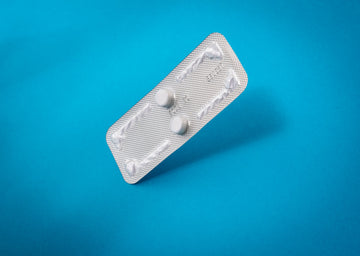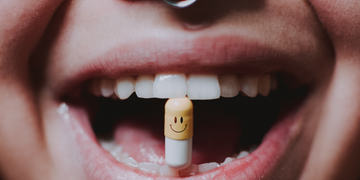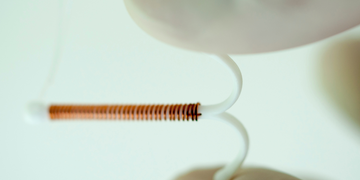Can I take the morning-after pill if I'm on birth control?

Forgetting to take your birth control on schedule happens to everyone, but if you got off the recommended schedule for your birth control, you may not be fully protected against pregnancy. In this situation, you can use emergency contraception, such as the morning-after pill, to help to prevent pregnancy after unprotected sex. In this article, we’ll go over when you should use the morning-after pill, how frequently you can use it, and what can impact how well it works to prevent pregnancy.
When should I take the morning-after pill?
If you’ve had unprotected sex or your birth control method failed or wasn’t taken on schedule, you can help reduce your risk of pregnancy by using the morning-after pill. Available online without a prescription, the morning-after pill is most effective when taken within 72 hours (3 days) after sex. The sooner you take it, the more effective it can work.
Shop the article
Reasons to take the morning-after pill can include:
- A condom breaking or diaphragm slipping out of place
- Forgetting to take your regular birth control
- You didn’t use any birth control
- Your partner didn’t pull out in time
- You believe your usual birth control failed for another reason
- You had unprotected sex
Is it safe to take the morning-after pill while on birth control?
If you believe your birth control didn’t work as intended, then you can use the morning-after pill to help prevent pregnancy. Hormonal birth control may not be effective if you missed multiple pills, forgot to switch your patch or ring at the appropriate time, or didn’t use your birth control as recommended during your current menstrual cycle.
Unless your medical care provider recommends otherwise, it is safe to take the morning-after pill while on birth control. The morning-after pill that is available as a prescription contains the same hormones as most hormonal birth control options, often just at higher doses.
Since the morning-after pill contains a higher dosage of hormones, you may experience some side effects after taking it. Side effects may include:
- Dizziness
- Headache
- Changes to your next menstrual cycle (in its flow, duration, and when it occurs)
- Breast tenderness
- Nausea
- Vomiting
If you vomit within a couple of hours of using the morning-after pill, ask your primary care provider whether you should take another dose.
How many times can you use the morning-after pill?
There’s no limit on how frequently you can use the morning-after pill. It is both safe and effective when used according to the included instructions. However, as mentioned earlier, the morning-after pill is not recommended for use as your regular method of birth control for a variety of reasons:
- The morning-after pill isn’t as effective as other regular birth control methods, including the IUD, pill, ring, and condoms (among others).
- Emergency contraceptives can be more expensive compared to regular birth control methods.
- Using the morning-after pill frequently may make your period harder to predict with each menstrual cycle.
If you’re looking to begin using birth control regularly, we suggest speaking with your primary care provider about your options. Factors to keep in mind in determining which birth control method is right for you can include:
- How effective your desired method of birth control is
- Your budget
- Some options may be more expensive than others
- How other medications might interact with your birth control and its efficacy
- Your medical history and any existing health conditions you may have
- Frequency in which you want to take your birth control
- There are daily, monthly, or multi-year options
- Potential side effects
Does using the morning-after pill frequently make it less effective?
How frequently you use the morning-after pill available without a prescription does not impact how effectively it prevents pregnancy. When used as directed within 72 hours after unprotected sex, the morning-after pill can reduce your risk of pregnancy between 75-89%. It’s important to remember that the sooner after unprotected sex you take it, the more effective it is.
While it is safe to use, taking the morning-after pill instead of regular hormonal contraception is not recommended for the reasons outlined above. A few medications that may make the morning-after pill less include barbiturates, St. John’s wort, and certain anti-fungal medications.
Other things that may impact how an emergency contraceptive pill works include when you take it, certain underlying health conditions, and whether you vomit after taking it. If you have concerns that emergency contraception may not work for you, reach out to your medical care provider for options.
Keep Reading

What's the deal with switching birth control?
Nov 9

How does the copper IUD work as an emergency contraceptive?
Jun 7

How to use the morning-after pill: A guide to Restart™
Jun 15











